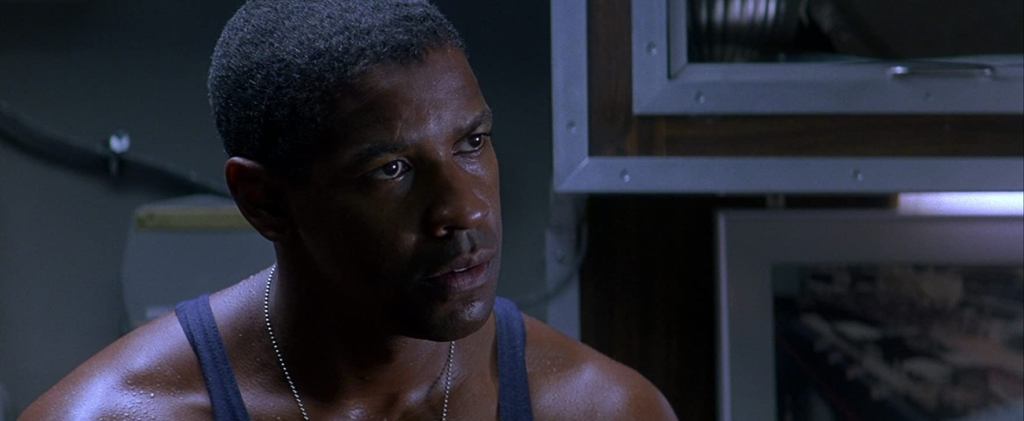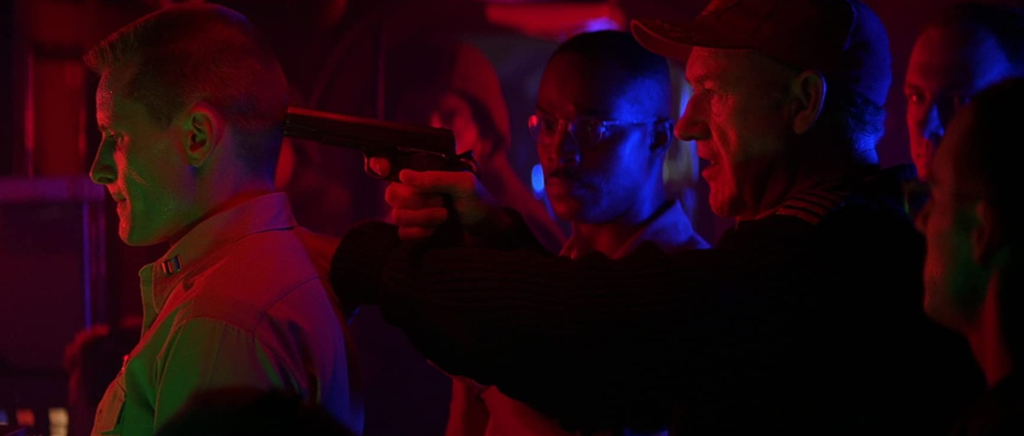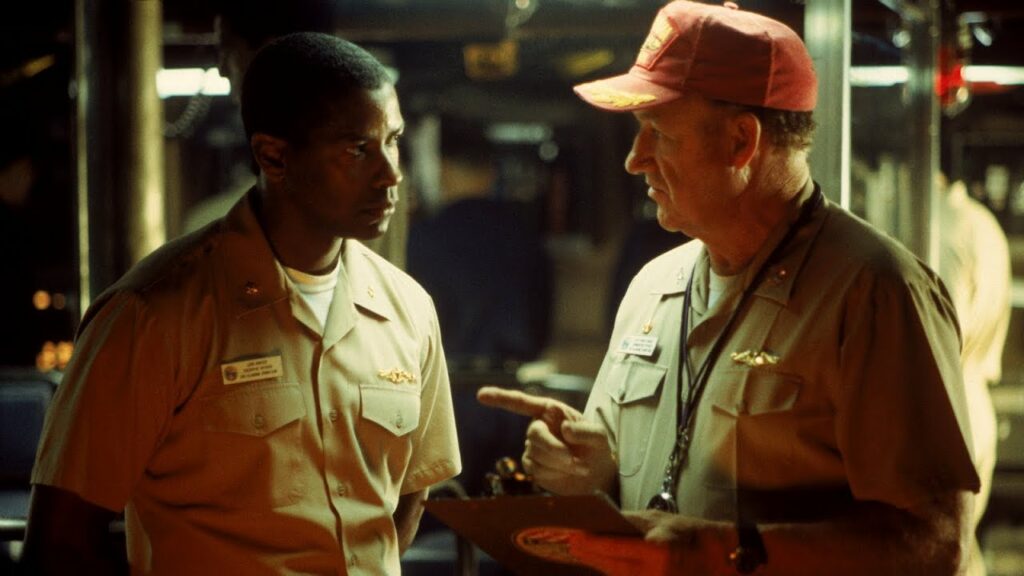A clash of acting titans under the sea. Two officers from wildly different schools of military thought fighting over control of a nuclear submarine, as the fate of the world hangs in the balance. 25 years on, Crimson Tide still rocks.

The 1995 action-thriller from the late, great Tony Scott has a well-deserved spot in the pantheon of all-time best submarine war movies. If you want a film that captures the immense claustrophobic toll on life in a submarine, you watch Das Boot. If you’re looking for tactical thrills and exciting naval mind games, your go-to should be The Hunt for Red October.
If you want a riveting character drama where the stakes are nuclear armageddon, Crimson Tide is the submarine film for you. The story follows a world on high alert, as a civil war in post-Soviet Russia may result in a dangerous ultra-nationalist getting his hands on nuclear missiles. An American nuclear submarine, the USS Alabama, is deployed in case a pre-emptive strike is needed.
Circumstances force the sub’s commanding officer, Captain Ramsey (played by Gene Hackman) to pick a new executive officer right before the mission, and he settles on Lieutenant Commander Hunter (played by Denzel Washington).

Ramsey is an impulsive hardass and a navy veteran – one of only a few submarine commanders with actual combat experience. Hunter is an extremely well-educated and highly analytical officer with no combat experience whatsoever. It’s old school versus new school onboard the Alabama, and the two men’s conflicting personalities make for a powerhouse dynamic.
Crimson Tide spends a good amount of time building up the tensions between its two leads and giving the audience plenty of opportunities to see what makes them tick. Gene Hackman and Denzel Washington are at the top of their game here, and watching them play off each other is absolutely amazing.
Taut writing and meaty characterization give the two legendary actors so much to work with. While we’re certainly meant to root for Hunter and his more cautious approach and worldview, Ramsey isn’t there to just be a foil or an obstacle.

When the order comes through to launch, Hunter wants to wait, since a partially received second message could have been a retraction. Ramsey doesn’t want to risk the wait to verify the second message and intends to uphold his last confirmed order instead. Both of them make strong, compelling arguments for their respective side and that’s when the bubbling tension turns into a full-blown war. Loyalties are put to the test as Hunter tries to remove Ramsey from command – both men convinced that if they don’t prevail, it’ll be the end of the world as we know it.
It’s the sheer strength of this central conflict that allows Crimson Tide to stand the test of time. Unlike Das Boot and The Hunt for Red October, Crimson Tide isn’t rooted in a deeply specific historical context like World War II or the Cold War. The external threat of the Russian ultra-nationalists is an easily interchangeable background detail.

It gives the story a sense of urgency that makes the drama all the more compelling. Backed by an excellent supporting cast that includes the likes of Viggo Mortensen and James Gandolfini, as well as a bombastic score from Hans Zimmer, Crimson Tide is pretty much always soaring.
Side note, Quentin Tarantino did some uncredited rewrites on the script. A fun Crimson Tide drinking game is to take a shot for every obvious Tarantino rewrite, as his signature style does stand out a fair bit. Not in a bad way, mind you, but it is pretty funny when characters start clearly Tarantino-ing.
If you’ve been sleeping on Crimson Tide, do yourself a favour and check it out, because it’s a classic well worth seeing.
